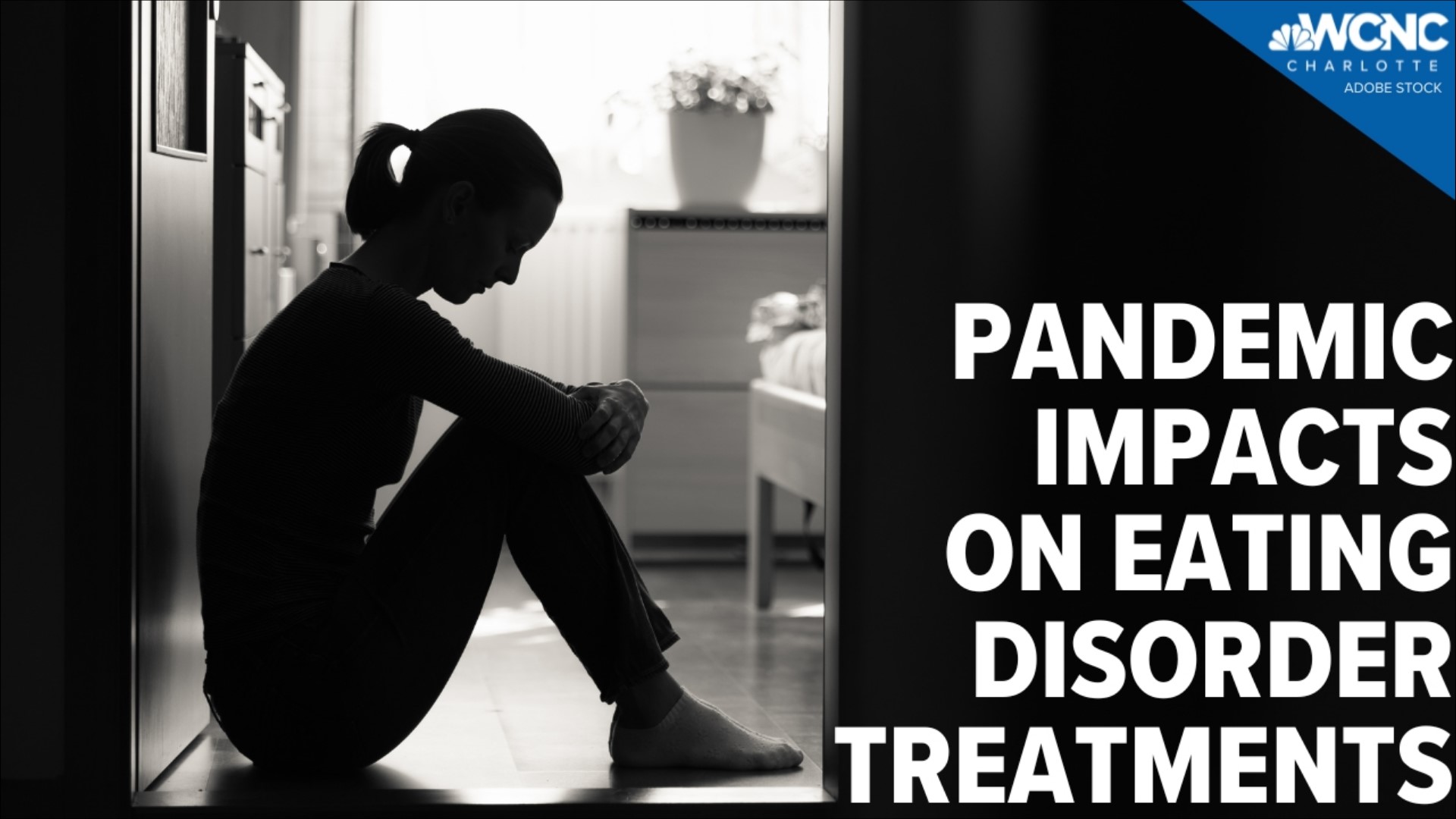CHARLOTTE, N.C. — A Charlotte center specializing in providing treatment to those with eating disorders said it's getting more severe cases when patients do eventually come in for treatment.
Doctors said there are a few reasons behind this, and the return to normalcy from the COVID-19 pandemic could be a factor.
Talking about mental health already has it's challenges. Dr. Preeti Matkins with Veritas, a center specializing in treatment for those with eating disorders, said while mental illness is stigmatized, it's more common than you'd think.
If you or a loved one are facing thoughts of suicide or self-harm, there is help readily available. You can call Suicide and Crisis Lifeline at 988 or chat with them online. There are also resources in North Carolina available here and in South Carolina available here.
"There’s stigma, and people are worried what people will think," Matkins said. "We are seeing a lot of patients who have been struggling for quite a while.”
According to NAMI, the National Alliance on Metal Illnesses, one in five people experience a mental illness. The National Association of Anorexia Nervosa and Associated Disorders (ANAD) says eating disorders affect at least 9% of the world's population.
Veritas said since COVID-19 restrictions were lifted, the center has seen patients come in far sicker.
"Children adolescents and families are so happy to be back in school and anything that could interrupt that, is a very difficult decision they could have to make," Matkins said.
At the center, it's common for someone to undergo treatment for 24 hours a week, missing out on school and other life events. It's something many people want to avoid.
“Treatment is scary and it means addressing the idea of eating disorders and thoughts," Matkins said. "If parents have a concern, pay attention to it.”
If you believe you or a loved one may have an eating disorder, help is available. ANAD has a toll-free helpline at 888-375-7767.
Contact Austin Walker at awalker@wcnc.com and follow him on Facebook, Twitter, and Instagram.

